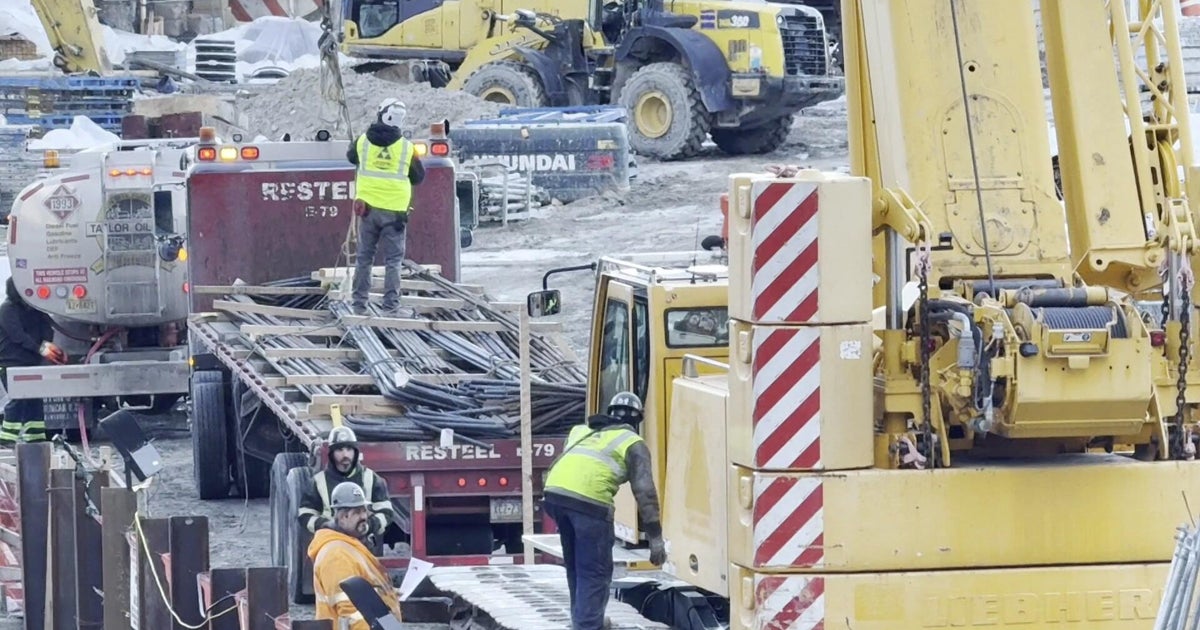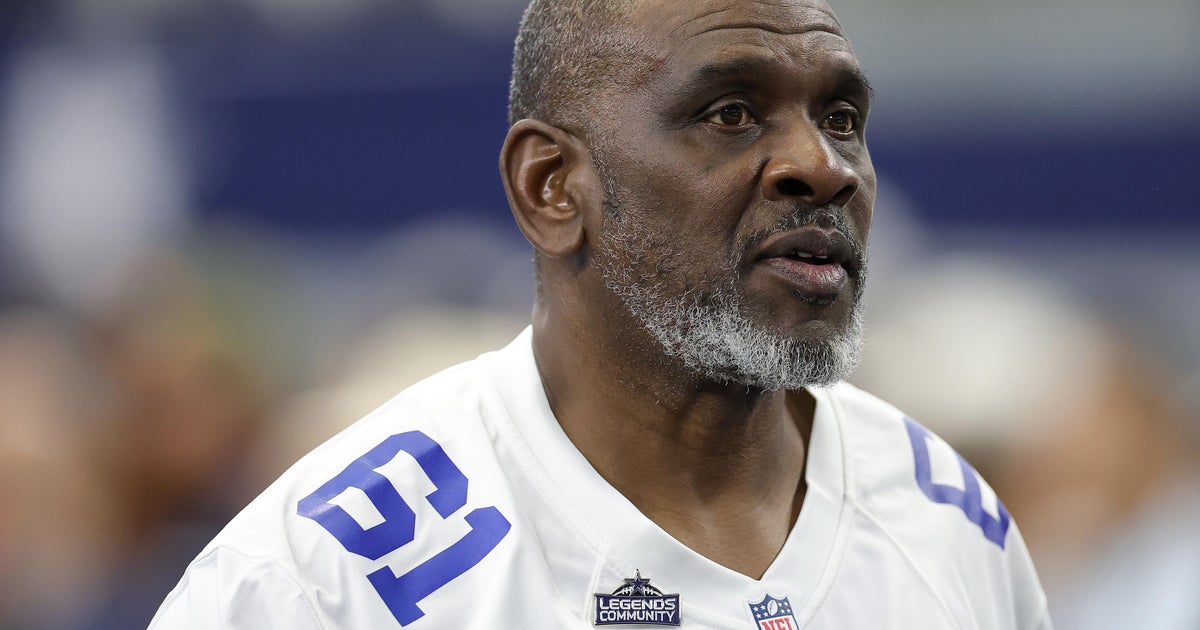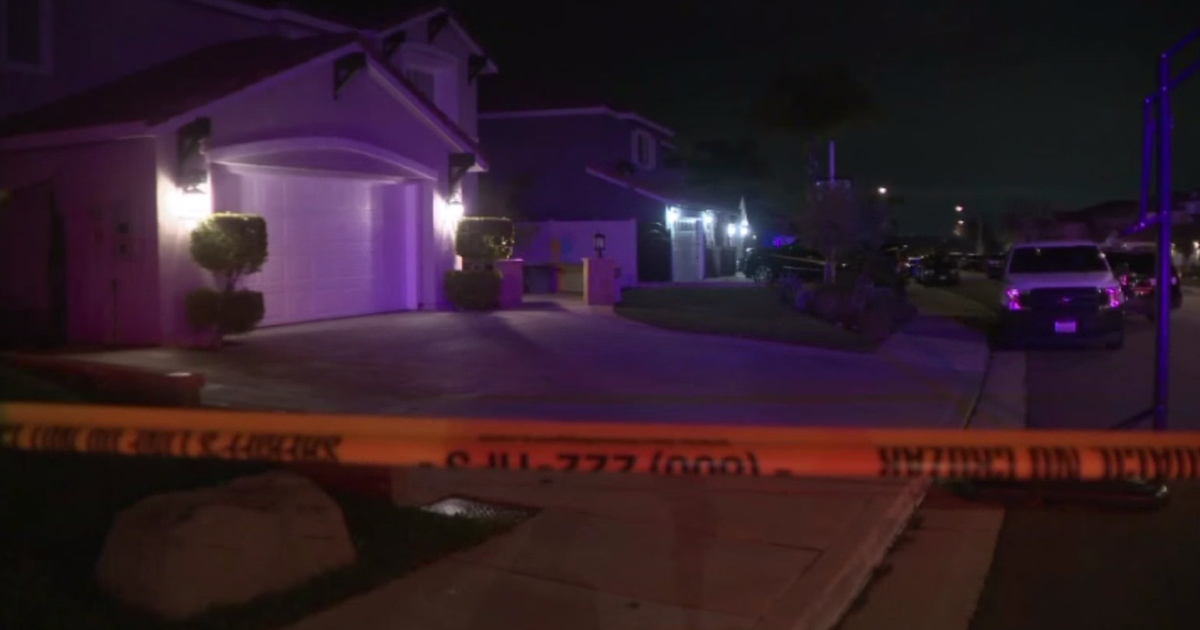Trump, Allies Mull Syria Strike As UN Security Council Holds Emergency Meeting
Follow CBSMIAMI.COM: Facebook | Twitter
WASHINGTON (CBSNews) -- The United Nations Security Council held an emergency meeting Friday on Syria, following the recent suspected chemical weapons attack in the country. Russia requested the meeting and said the top priority should be averting a wider war.
President Trump discussed U.S. military options to respond to the alleged chemical attack in Syria with his advisors and American allies on Thursday, but has not made a final decision on his response.
President Trump spoke Thursday evening with British Prime Minister Theresa May. CBS News national security correspondent David Martin reports that the two leaders agreed Syrian President Bashar al-Assad's alleged use of chemical weapons should not go unchallenged. Britain, the U.S. and France are working together on an international response.
Defense Secretary James Mattis left the White House late Thursday afternoon after briefing the president on options for a military strike on Syria. But shortly afterward the White House said "no final decision has been made."
That was a marked change from Monday, when a decision seemed imminent.
U.S. intelligence estimates that 42 people died in the weekend attack, most of them showing symptoms consistent with chlorine gas, with others having symptoms more consistent with exposure to a nerve agent.
"We have proof that last week chemical weapons, at least chlorine, were used by the regime of Bashar al-Assad," French President Emmanuel Macron said flatly this week. A spokesman for Britain's prime minister said her cabinet agreed it was "highly likely" the regime was responsible.
But testifying before Congress on Thursday morning, Mattis seemed more cautious, saying he believed there was "a chemical attack," but noting that U.S. officials were still waiting "for the actual evidence."
The pictures of the aftermath of the attack in Syria are compelling, but two critical questions remain; what kind of chemical was used and who was responsible.
Former Deputy Director of the CIA Mike Morrell, now a CBS News analyst, said if President Trump is going to take military action, "the intelligence community would want to give him a high confidence judgment" to make that call.
Intelligence analysts have concluded the symptoms shown in the videos are consistent with exposure to chlorine gas, and that some of the victims look like they may have been exposed to a nerve agent. But that's not enough.
"You can only really nail it down when you get a blood sample that you have confidence in where the blood sample came from and what the chain of custody was," Morrell said.
U.S. officials have told CBS News the blood samples provided by hospital workers in Syria do indeed confirm the presence of chemicals, but they need to be sure the evidence hasn't been doctored.
"Assad's never been stronger than he is today, so the opposition would want nothing more right now than to significantly weaken him with a U.S. airstrike," notes Morrell.
Over the past six months, U.S. intelligence has confirmed four other chemical attacks carried out by the regime, but none of them triggered a military response.
The stakes are higher after this latest attack because Russia has warned the U.S. not to strike.
"I do think there's the possibility of a military confrontation between the United States and Russia in Syria," Morrell said.
Morell said the fact that the administration did not come to a final decision on Thursday night suggests they want any military effort to be a coalition military effort.
Weapons inspectors from an international disarmament organization, the Organization for the Prohibition of Chemical Weapons (OPCW), are en-route to Syria and due to begin their investigation on Saturday.
As CBS News correspondent Seth Doane reported on Thursday, they will be working in territory which Russia claimed on Thursday had been completely retaken from Syrian rebels. On Friday, Russian Foreign Minister Sergey Lavrov seemed to prejudge the OPCW investigation before the inspectors even reached the area in question.
Speaking to reporters in Moscow, Lavrov said he was confident the inspectors would find no evidence at all of a chemical attack, and he called the allegations that one had taken place last weekend in the Damascus suburb of Douma a fabrication by Western intelligence agencies.
The top Russian diplomat said Russia had, "irrefutable information that it was another fabrication, and intelligence agencies of a state that is now striving to spearhead a Russophobic campaign were involved in that fabrication."
Several hours later, a spokesman for Russia's defense ministry said the military had "proof that testifies to the direct participation of Britain in the organizing of this provocation." He said Britain had worked with the White Helmets, civilian first responders who the Syrians and Russians claim are "terrorists" along with the rebel factions, to fake a chemical attack in Douma.
Addressing the U.N. Security Council on Friday, U.S. Ambassador Nikki Haley said of Russia: "No one is buying its lies and cover-ups."
She added that the U.S believes Assad has used chemical weapons in Syria at least 50 times.
Mr. Trump has "not yet made a decision about possible action in Syria," Haley reiterated, but she said if the U.S. does act, it will be in agreement with all U.S. allies, "in defense of a bedrock international norm that benefits all nations."
At the last minute during the Security Council meeting, U.N. Secretary-General Antonio Guterres decided to accept Russia's request to brief the Council, reports CBS News' Pamela Falk, and he cautioned that military action is not the solution.
When CBS News asked to visit Douma, where the suspected chemical attack occurred, Syrian authorities said it was still too dangerous and the Syrian government wasn't fully in control. The government may make work difficult for the inspectors who are set to start their investigation on this weekend.







